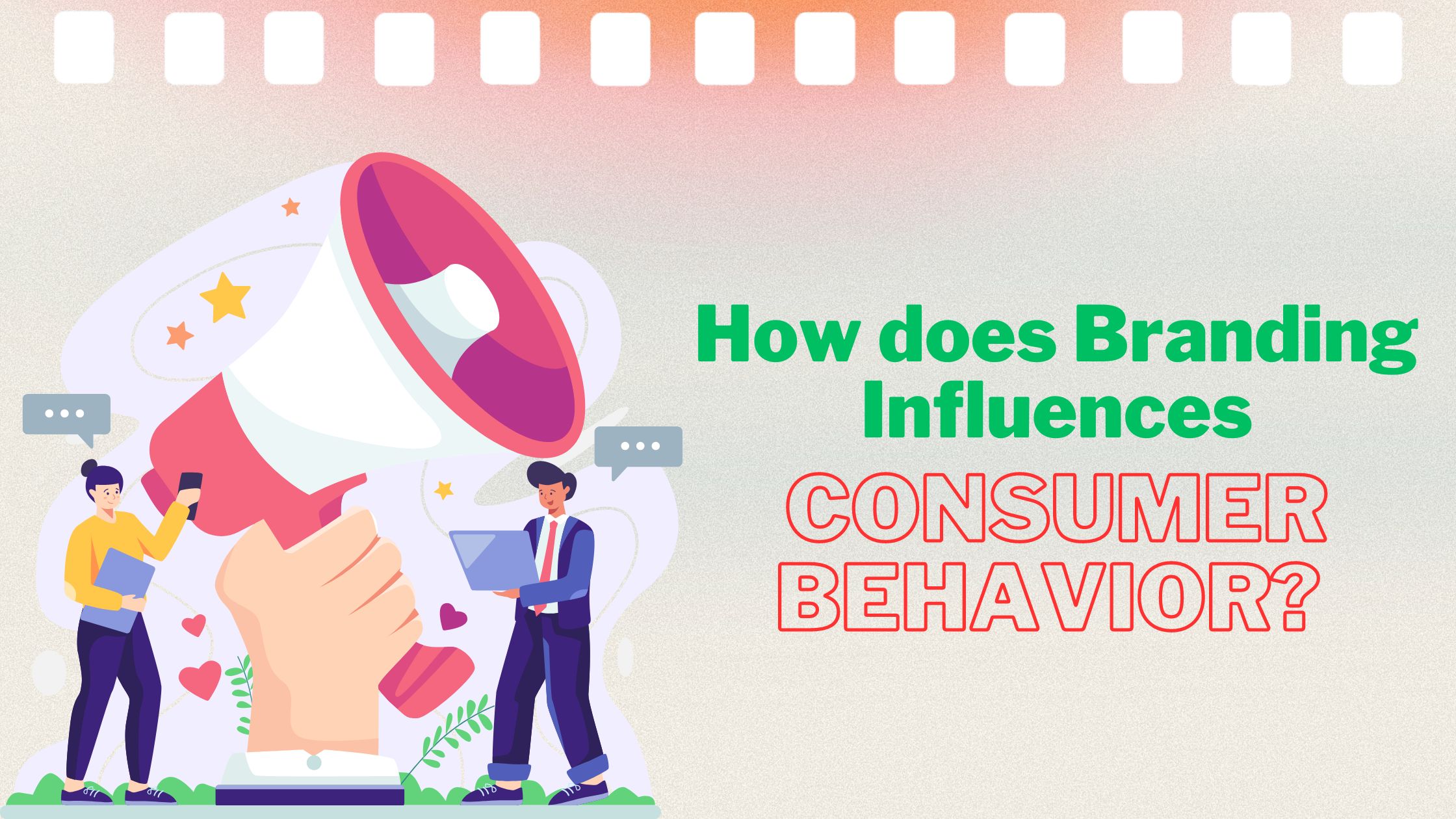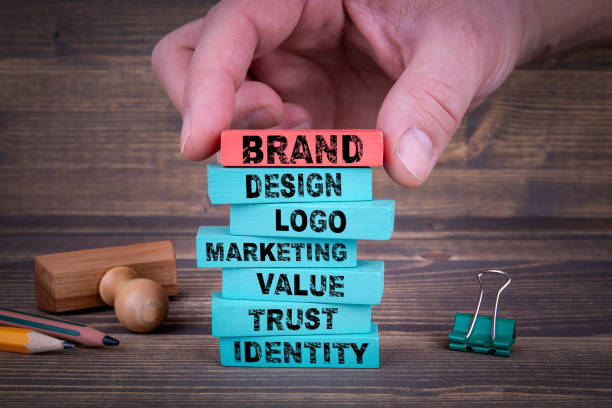How does Branding Influences Consumer Behavior?
 Woosper
Woosper
Have you ever wondered why you routinely select some brands over others? It's not only about the product but also about its backstory. Crafting a story that resonates with customers personally is the art of branding. It is the unseen force that eventually determines our purchasing behavior, forms our tastes, and impacts our judgments.
Let's explore the psychology of brand loyalty and see how branding functions.
What is Branding?

Branding is a strategic process that involves developing a unique identity for a company or product to set it apart from the competition in the marketplace. It consists of several aspects, including the brand's name, logo, visual identity, and overall statement. Effective branding not only conveys a company's values but also impacts customer perceptions and purchase decisions. A brand builds trust and loyalty by regularly meeting its promises and maintaining a consistent identity across all touchpoints.
In today's digital world, branding has expanded to include businesses' online presence through websites, social media, and digital marketing strategies. Powerful branding delivers a lasting impact, ensuring that a firm stands out in a crowded market and remains top-of-mind with clients. Ultimately, branding is about influencing how people perceive a product or service and generating value that goes beyond the product itself.
How is Branding related to Consumer Behavior?
Due to its ability to influence perceptions, establish trust, create emotional bonds, and streamline decision-making processes, branding has a significant impact on customer behavior. Businesses hoping to foster long-term success, and loyalty must comprehend this relationship.
1. Perception Formation:
• Creates a unique identity that allows consumers to identify throughout products.
• Determines how consumers perceive quality, dependability, and value.
2. Trust and Credibility:

• Increases trust via consistent message and product excellence.
• A positive brand reputation impacts buying decisions.
3. Emotional Connection:
• Forms emotional relationships, promoting brand loyalty and repeat purchases.
• Engages consumers via storytelling, making companies more relatable.
4. Decision-Making Process:

• It serves as a cognitive shortcut, and customers favor recognizable brands when making decisions.
• Influences preferences by creating a sense of superiority or exclusivity.
5. Cultural and Social Factors:
• Consumers prefer companies that align with their beliefs.
• Promotes word-of-mouth marketing via positive customer experiences
6. Digital Influence:

• Improves online presence through social media and marketing, impacting customer interactions.
• Online reviews and involvement have a big impact on customer impressions.
7. Brand loyalty:

• Fosters long-term connections with consumers who align with the brand's values. • Loyalty encourages recurrent purchases and brand promotion among customers.
8. Market differentiation:
• Enables businesses to stand out in competitive marketplaces and influence consumer preferences.
• A well-defined brand might fetch higher prices owing to perceived value.
The Psychological Impact of Branding
Branding has a significant psychological influence on customers, affecting how they view products and decide what to buy. Emotions are stimulated by effective branding, which forges connections that can generate sentiments of familiarity, loyalty, and trust. For example, Apple's branding strategy uses technological advances and sleek design to communicate high quality and innovation. This strategy has produced a dedicated base of consumers who share the brand's values.
Coca-Cola, which often incorporates emotional branding into its advertising efforts, is another remarkable case study. Through the "Share a Coke" campaign, the firm assigned popular names to bottles, giving customers a sense of personal connection to the brand. This clever use of strategic digital marketing not only raised engagement but also dramatically increased sales.
Ultimately proving the power of emotional and psychological branding components to influence customer behavior and brand loyalty. Overall, businesses can foster enduring relationships with their audience by comprehending the psychological effects of branding.
Branding and Consumer Decision-Making

Branding influences customer decisions by shaping perceptions and emotions. A convincing example is Dove, which effectively changed beauty standards with their "Real Beauty" campaign. Dove built a stronger customer bond by emphasizing credibility and authenticity, resulting in brand loyalty and trust. This strategic approach resonated more with women, who felt represented and respected. Dove's campaign raised sales while also positioning the company as a social responsibility leader in the beauty industry.
The campaign's effectiveness demonstrates how good branding may impact customer behavior and purchase decisions. Collaborating with the best digital marketing company for organizations looking to improve their branding approach can bring valuable insights and unique solutions. Understanding and aligning customer values allows companies to leave long-lasting impressions that foster loyalty and promote sales growth.
Effective Strategies to Influence Purchasing Decisions

The following strategies can significantly influence consumer purchase decisions and boost brand loyalty.
• Establish a deep emotional bond with customers by associating the brand with issues or ideals that are meaningful to them.
• To increase awareness and trust, ensure your brand messaging is consistent across all channels.
• Utilize recommendations, reviews, and testimonials to demonstrate client happiness while building credibility.
• Leverage digital branding solutions to personalize messages for target audiences according to their tastes and behaviors. In fact, 91% of consumers say they are more likely to shop with brands that provide offers and recommendations relevant to them (Forbes Advisor).
• Offer exclusive offers or time-limited discounts to promote quick purchases.
• Create gripping stories to draw customers in and increase the relatability of a service or product.
• Provide individualized suggestions or experiences based on client data, making them feel valued.
Conclusion
In summary, branding goes beyond just a logo or a tagline—it creates emotional connections, builds trust, and shapes customer perceptions. Businesses can develop better, longer-lasting relationships by connecting their mastering brand strategy with customer emotions.
An effective brand has the ability to attract and keep customers via narrative, consistent message, and clever digital marketing. In today's competitive market, understanding and leveraging branding's impact on customer behavior is critical for organizations aiming to stand out and prosper.
Ready to grow your brand and build lasting connections? Contact us now for expert branding solutions!
Subscribe to my newsletter
Read articles from Woosper directly inside your inbox. Subscribe to the newsletter, and don't miss out.
Written by

Woosper
Woosper
Woosper is your compass through the ever-changing landscape of digital marketing. Our team of passionate experts stays on the bleeding edge, obsessing over the latest trends and uncovering what makes brands win online. We're a data-driven powerhouse wielding a comprehensive toolkit that includes PPC, social media, SEO, email, and content marketing. We craft more than just campaigns; we create immersive experiences that resonate deeply with your target audience and deliver results you can measure.